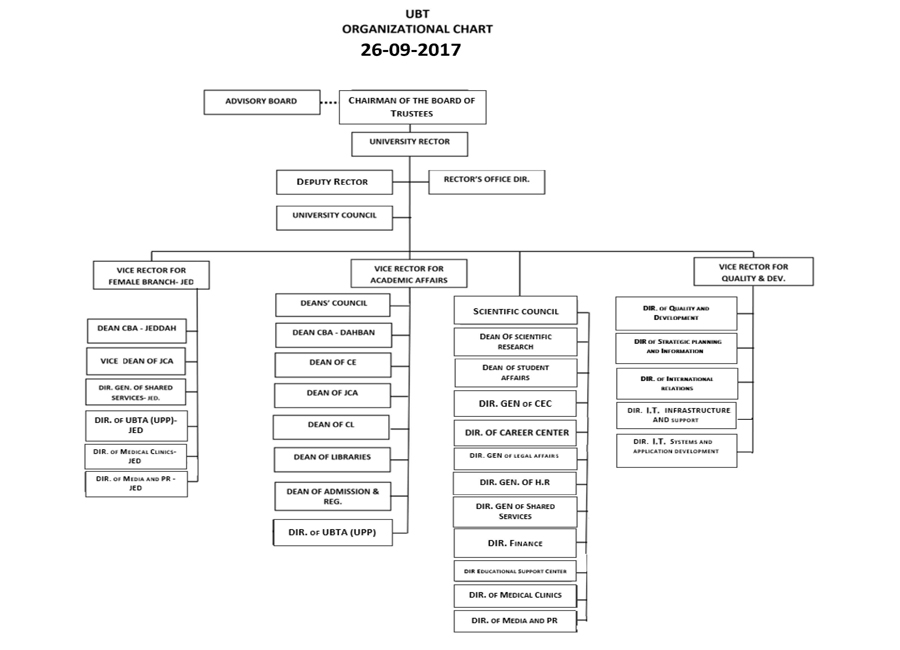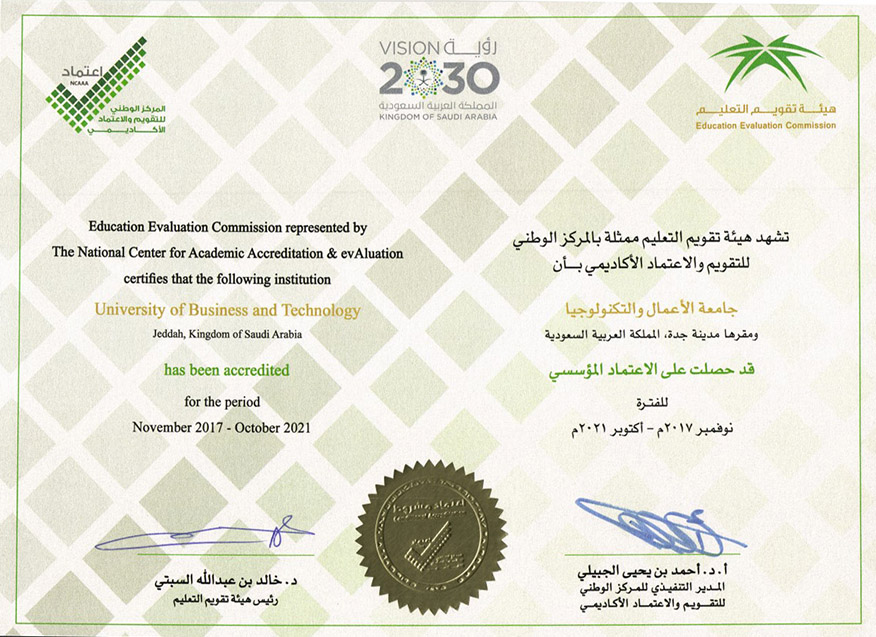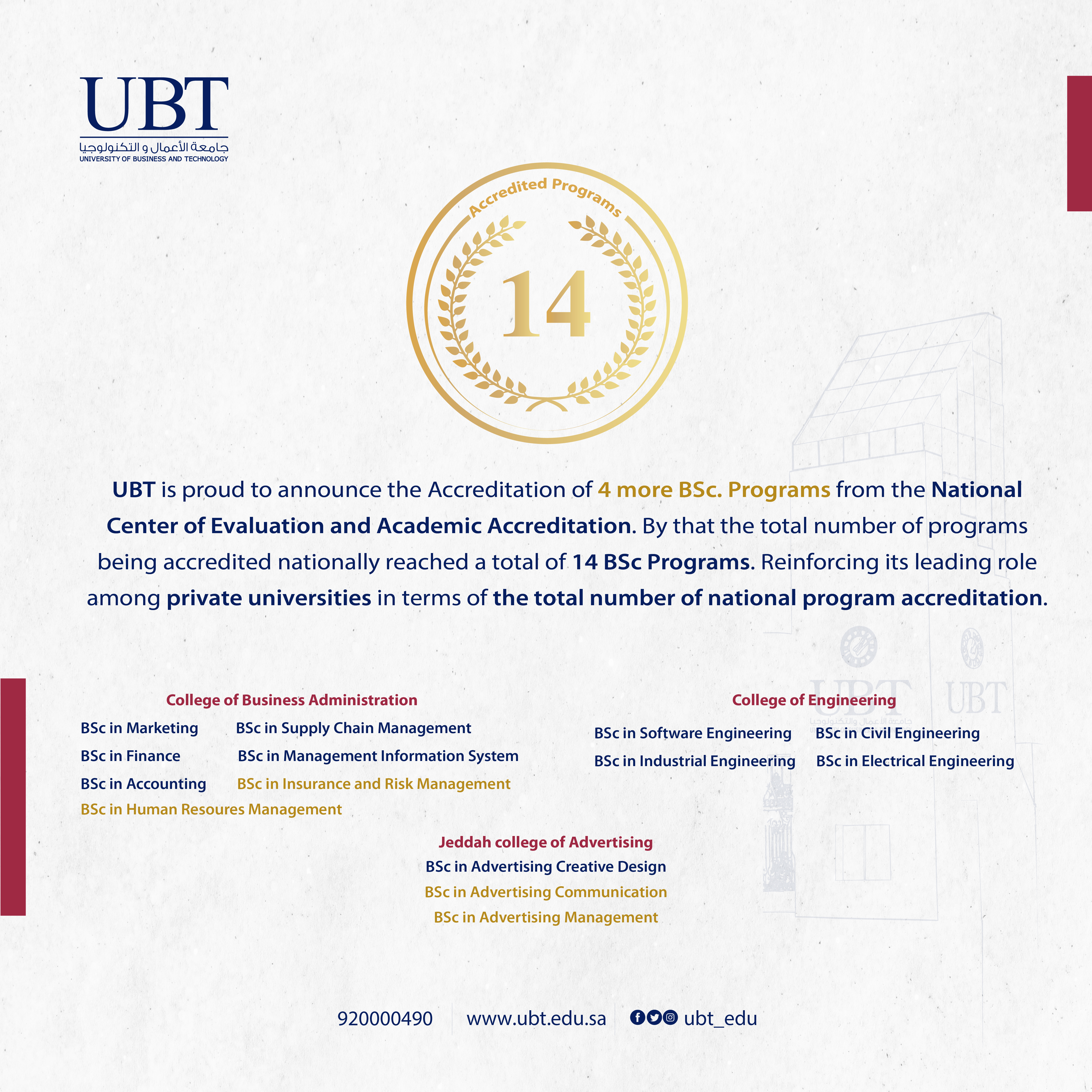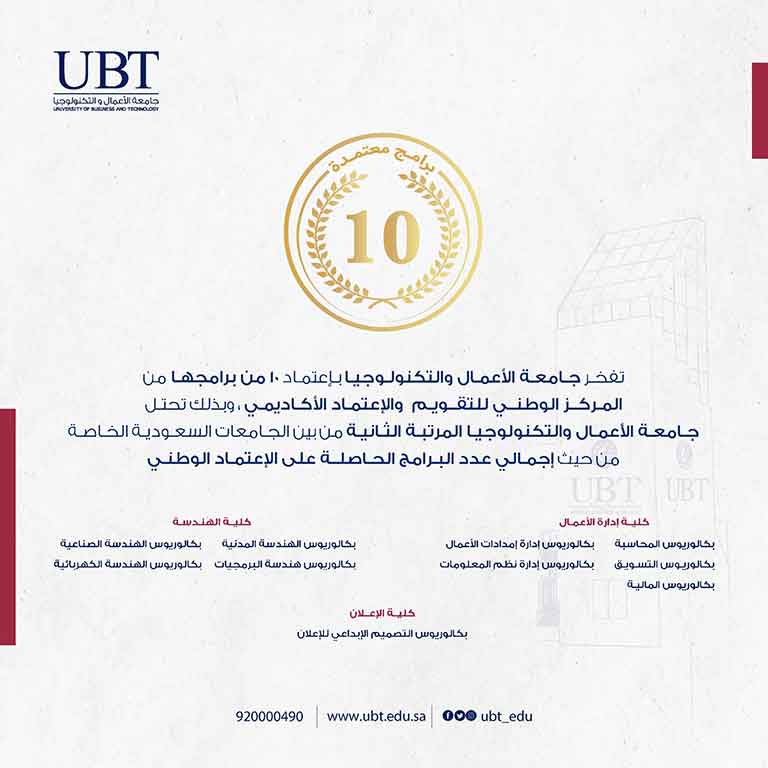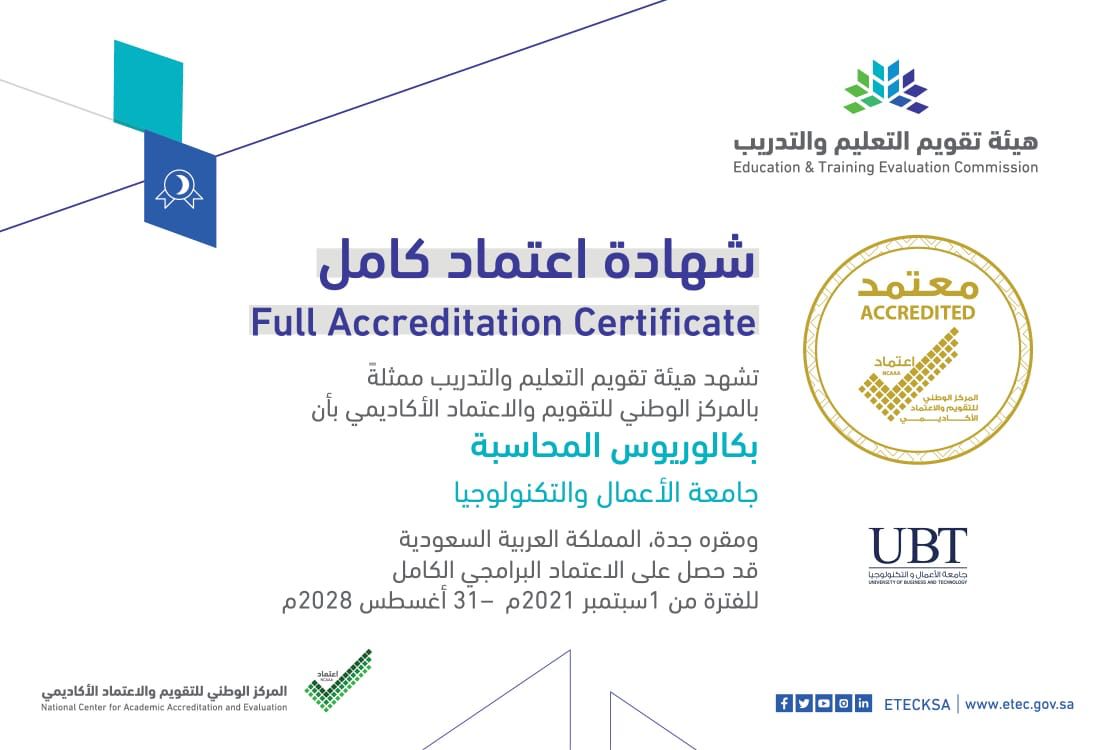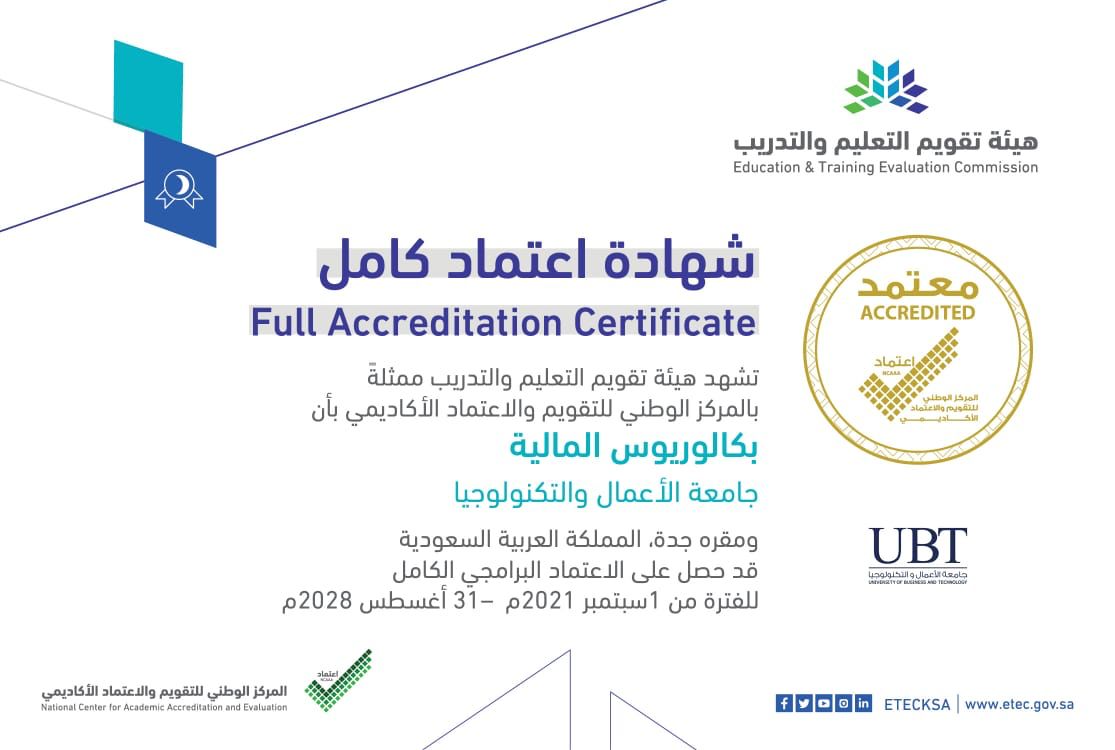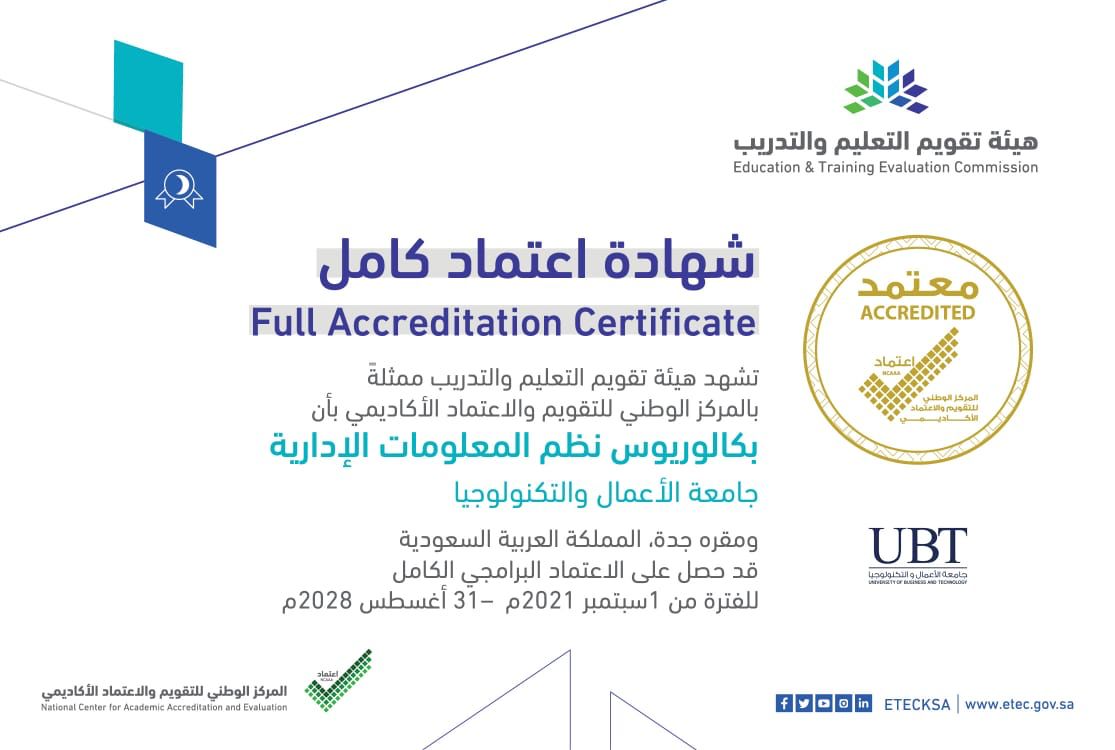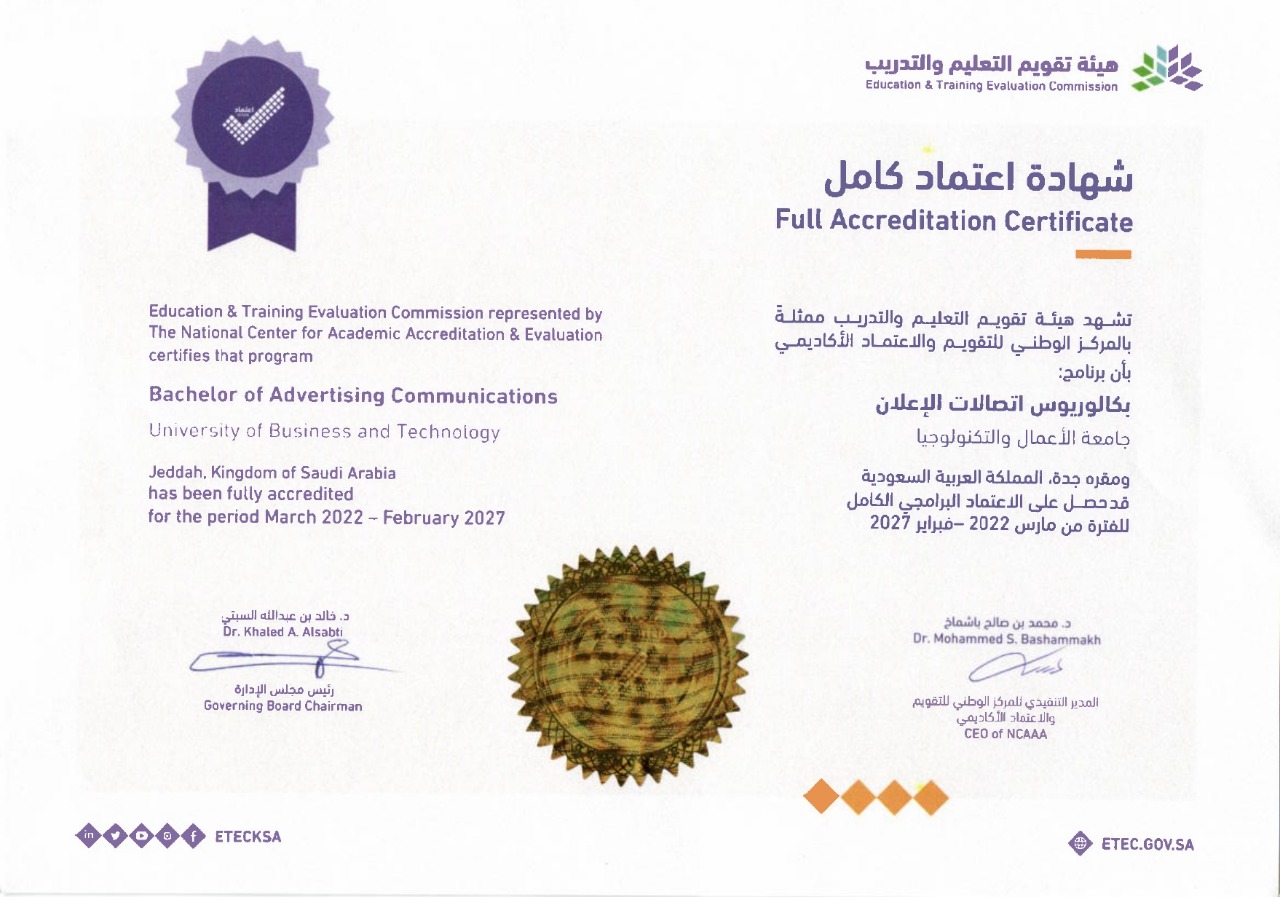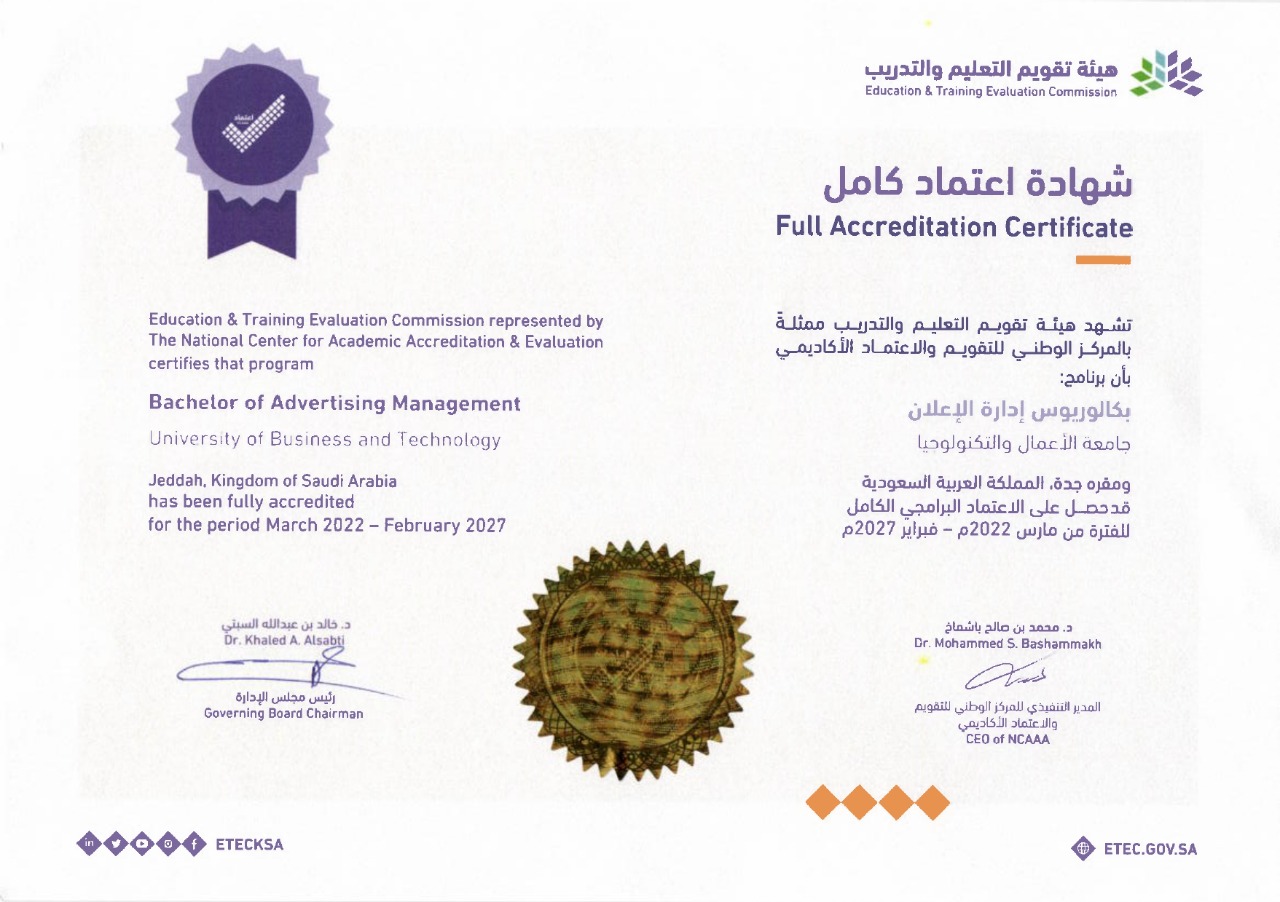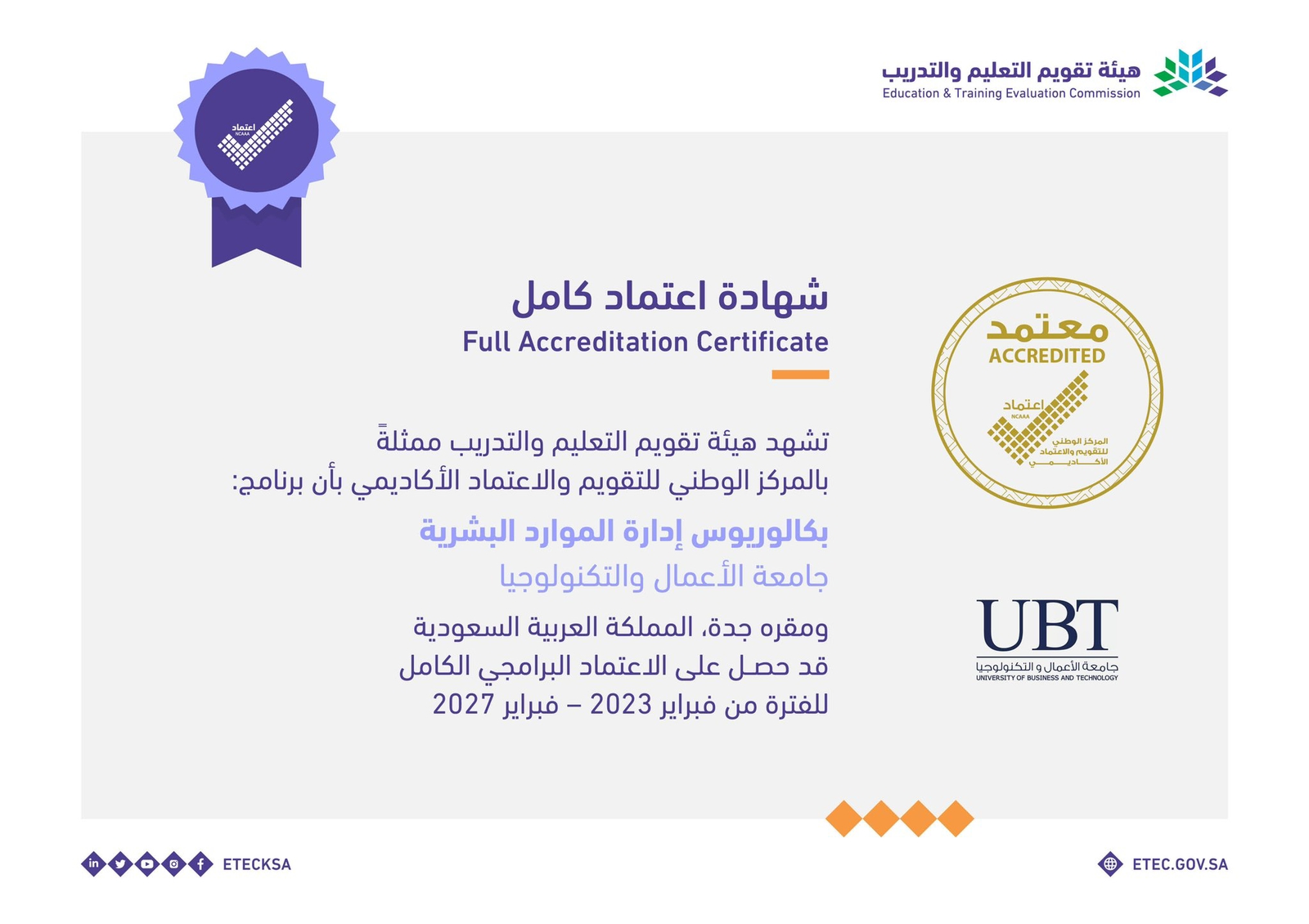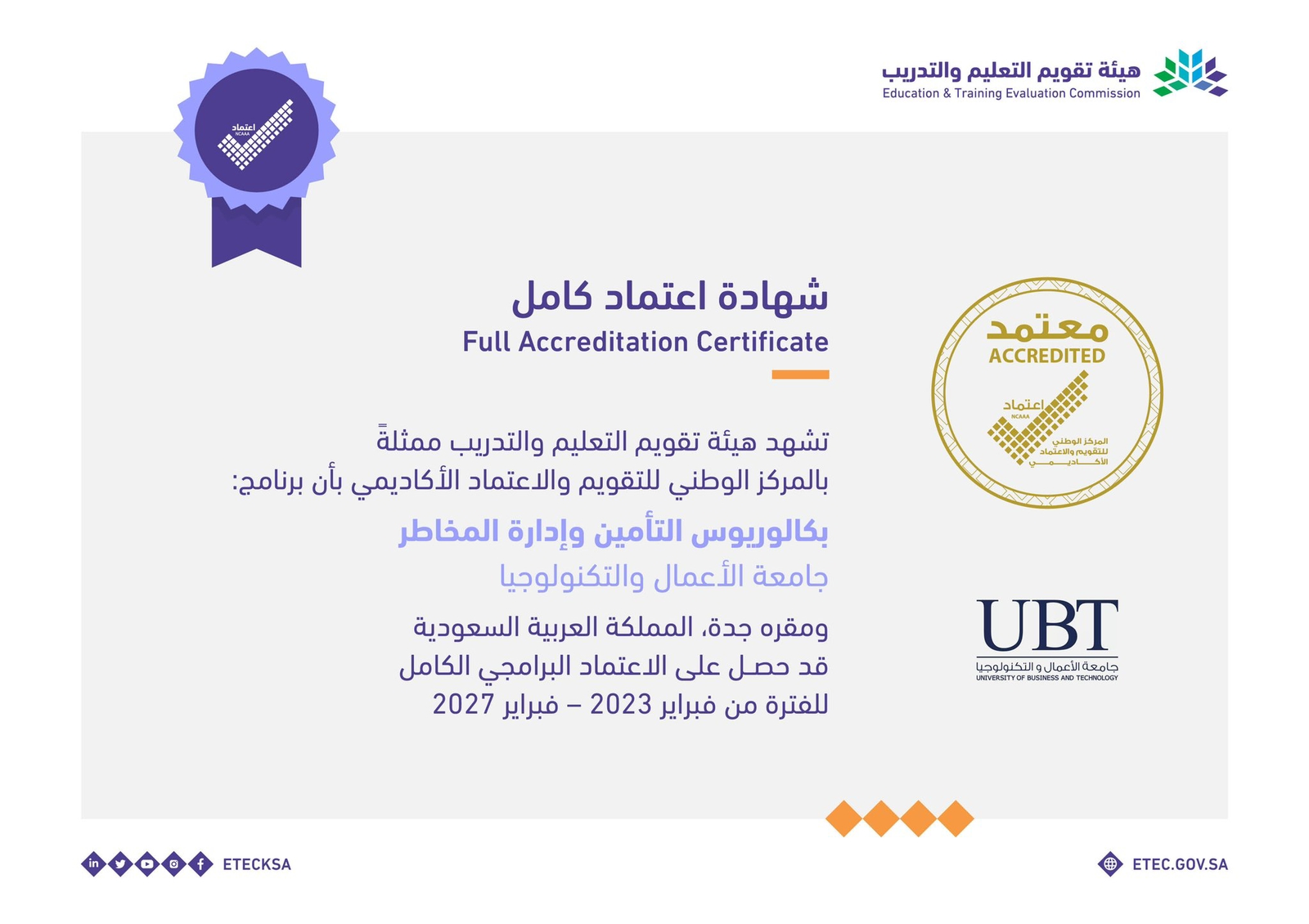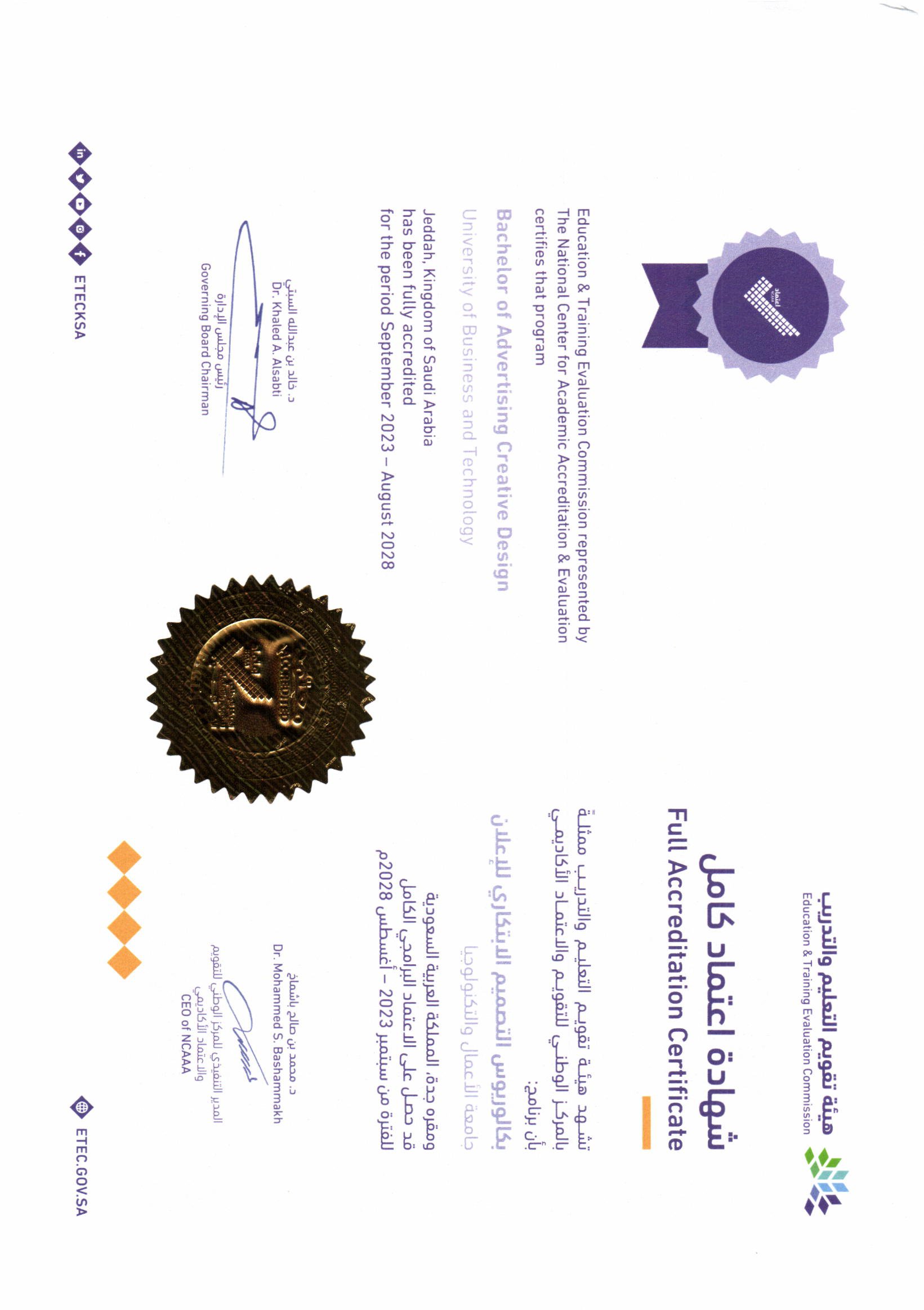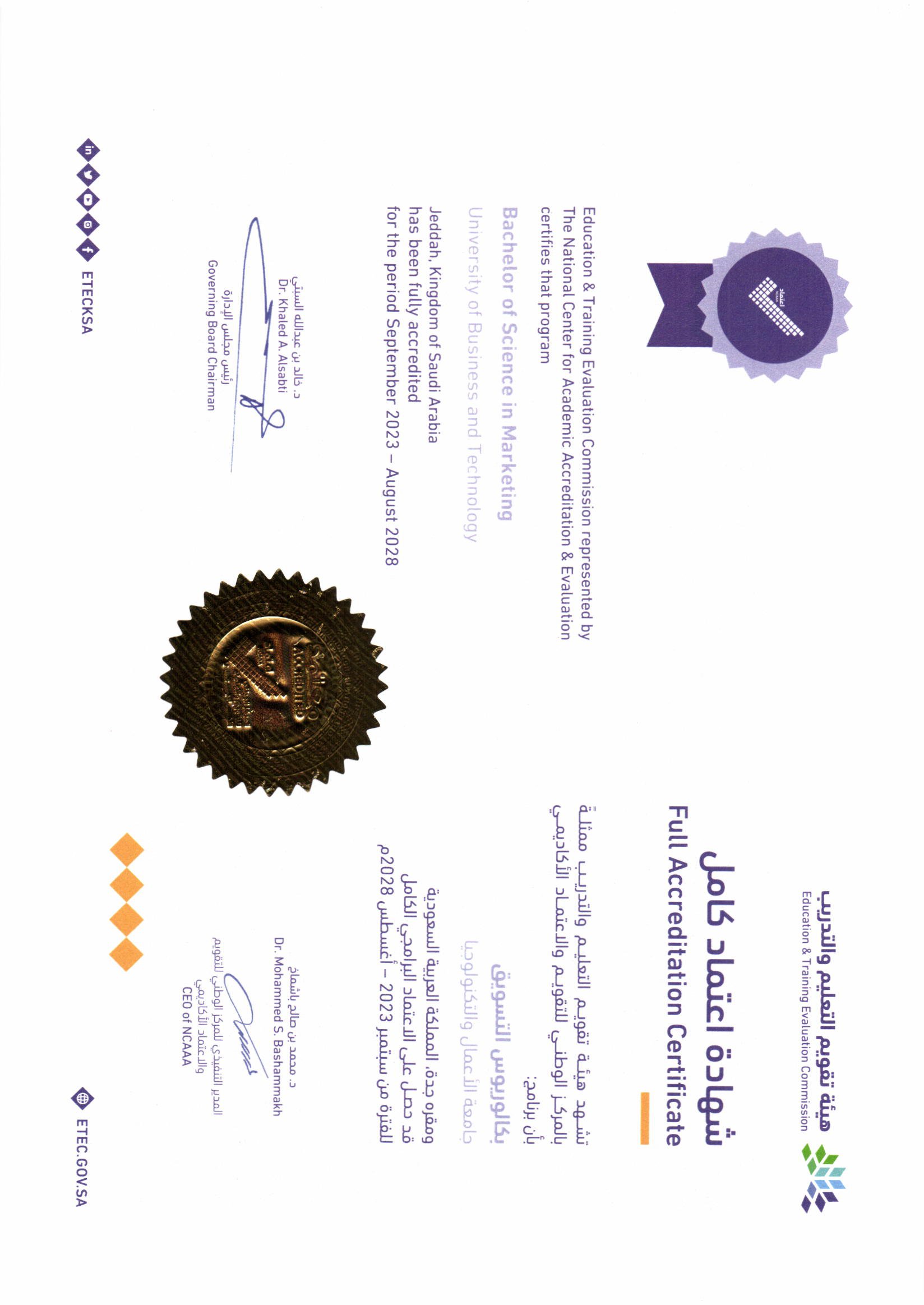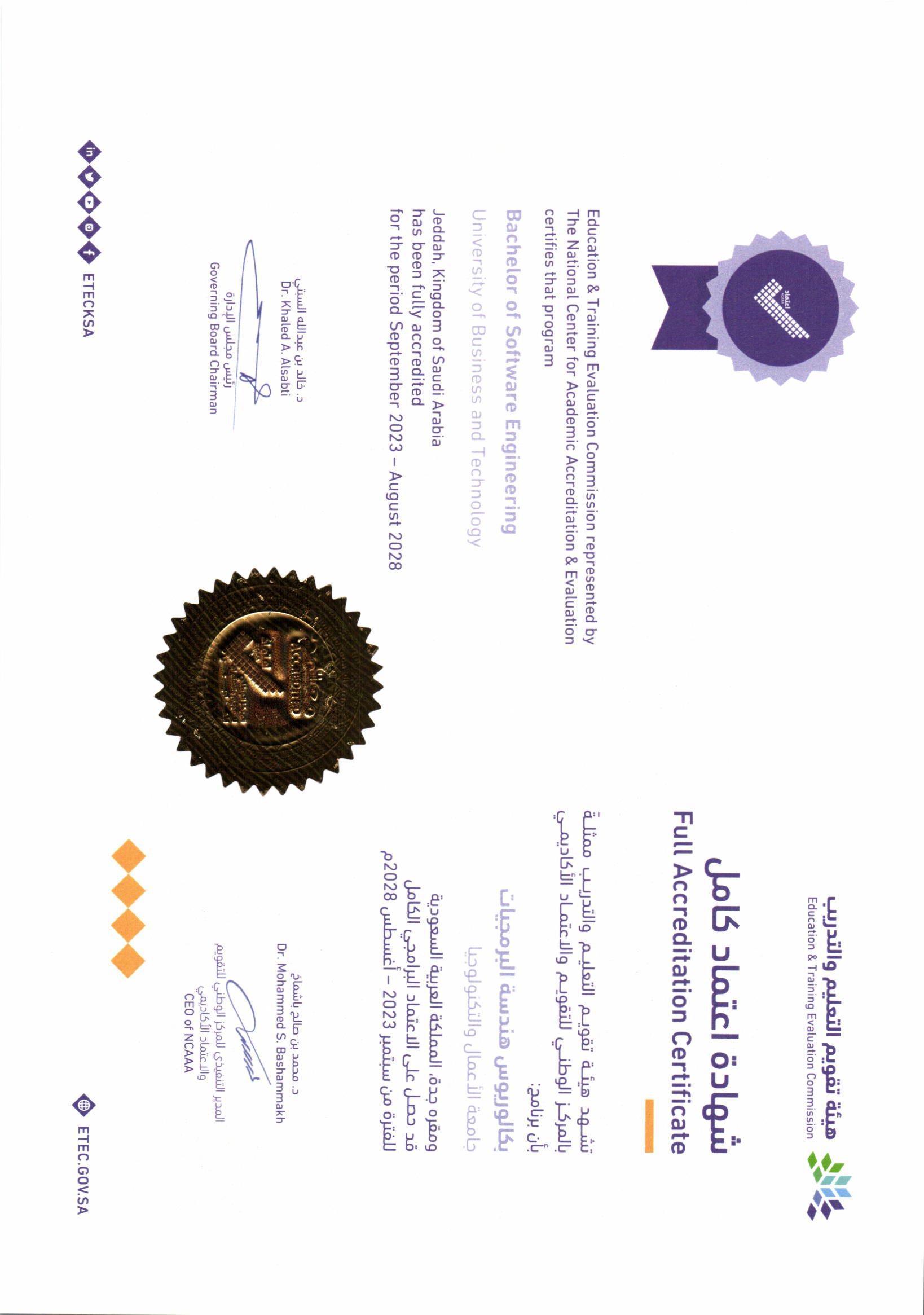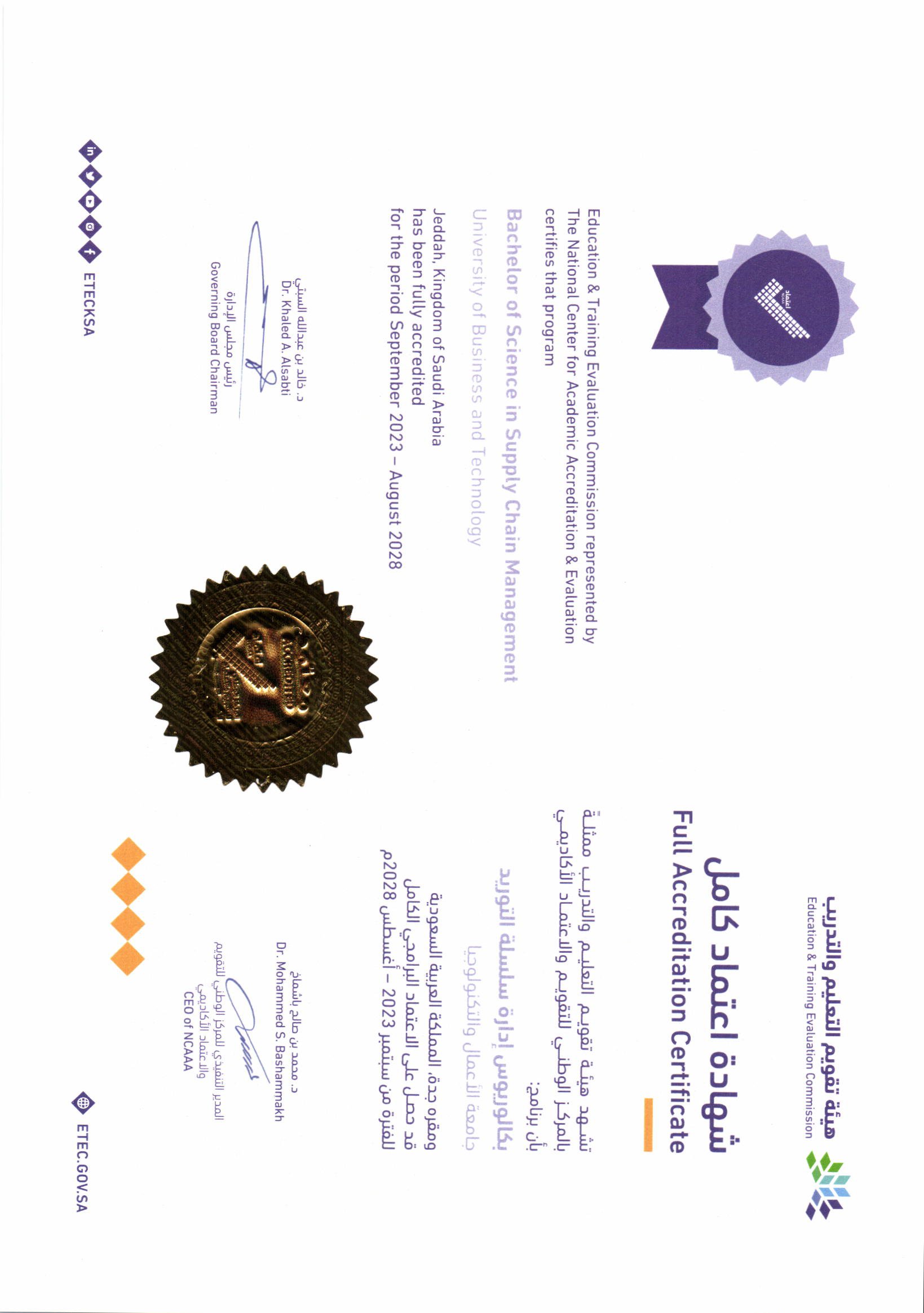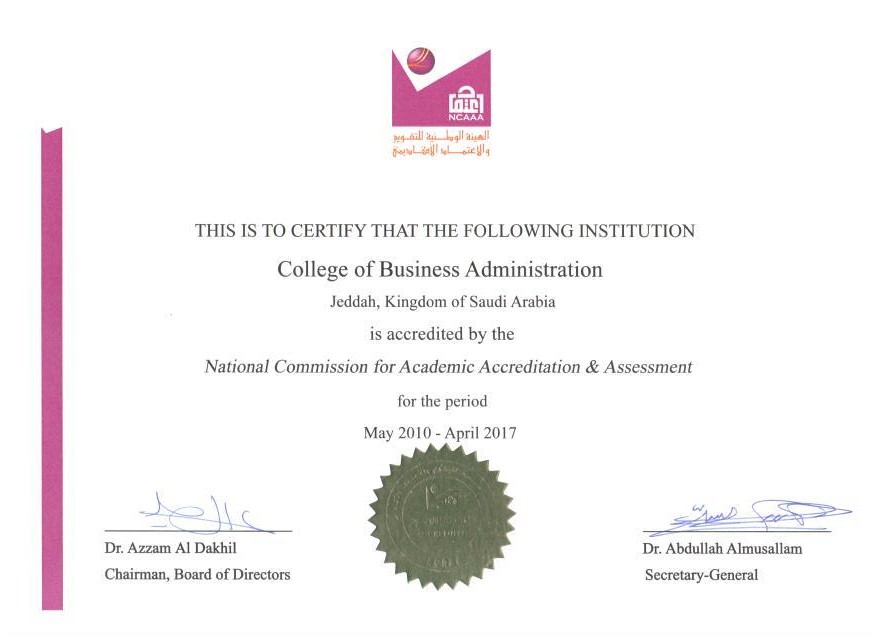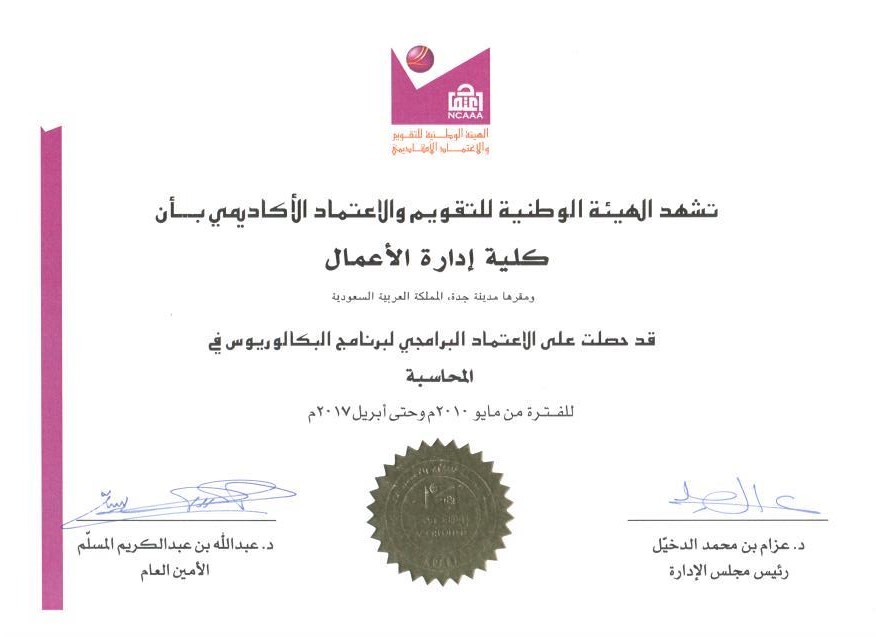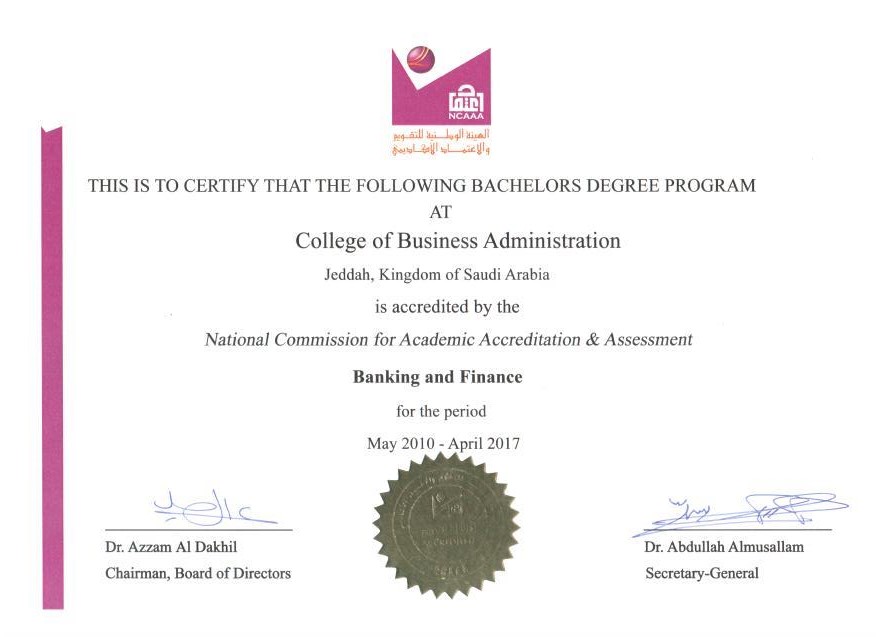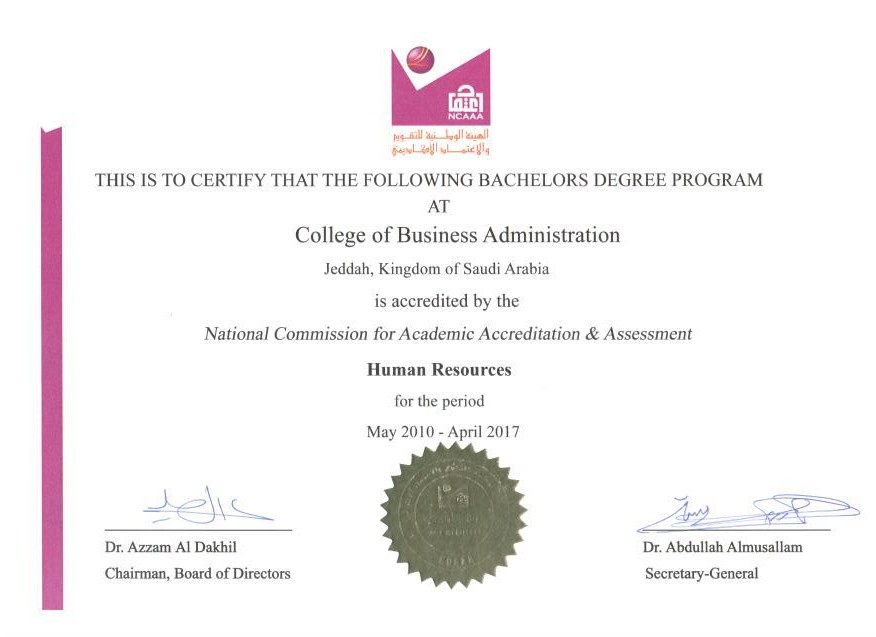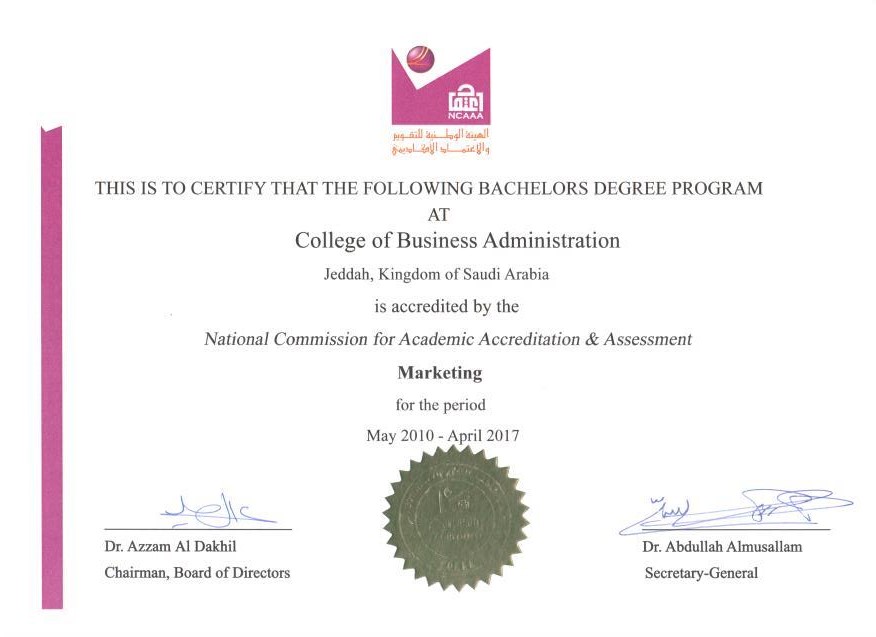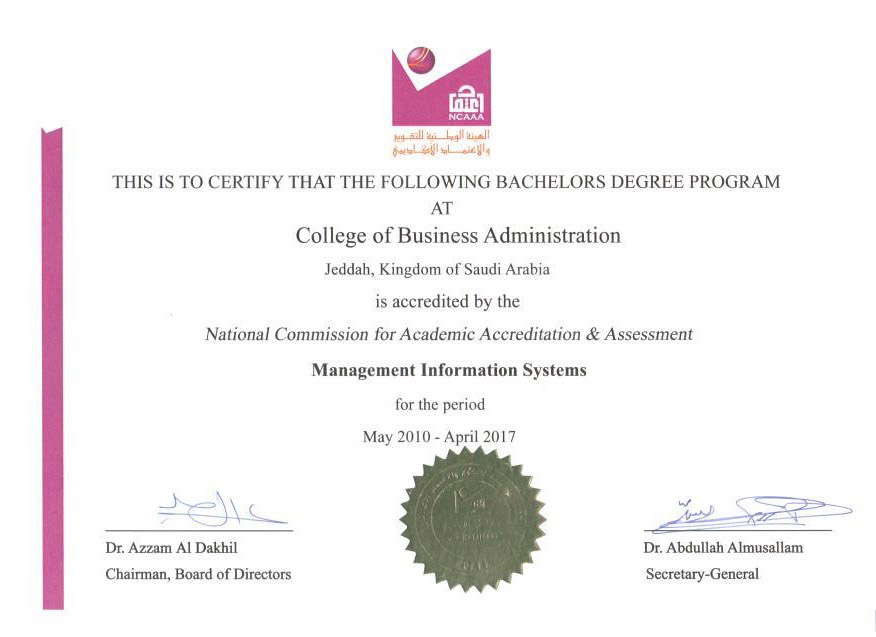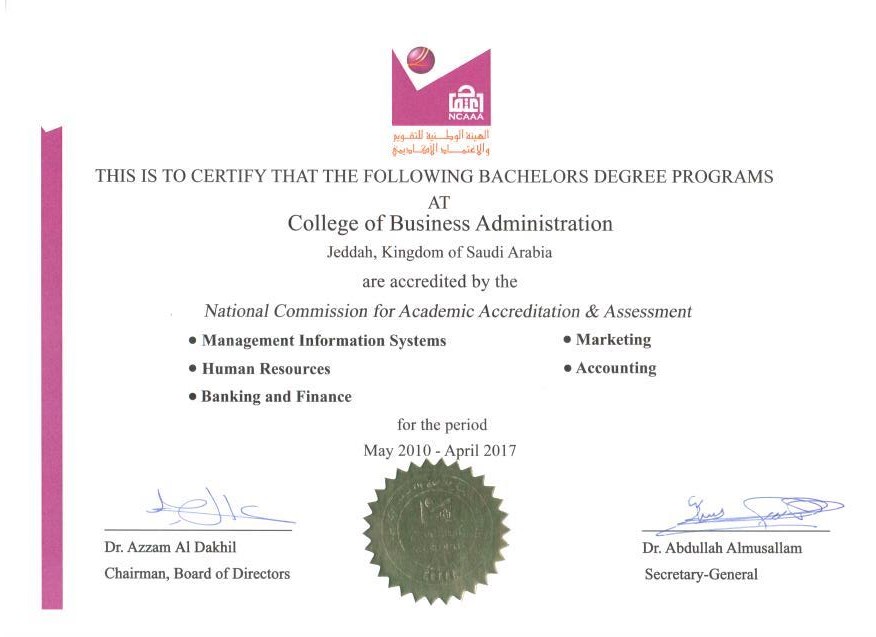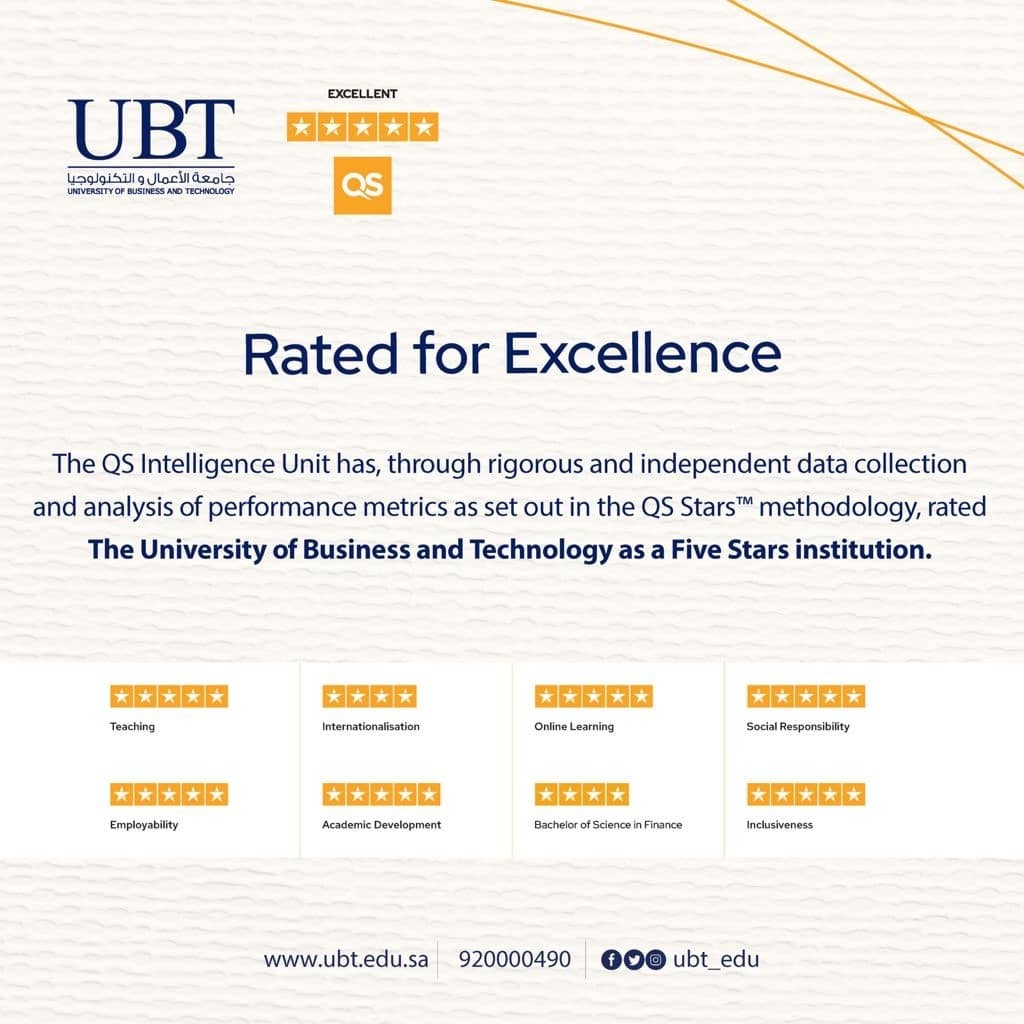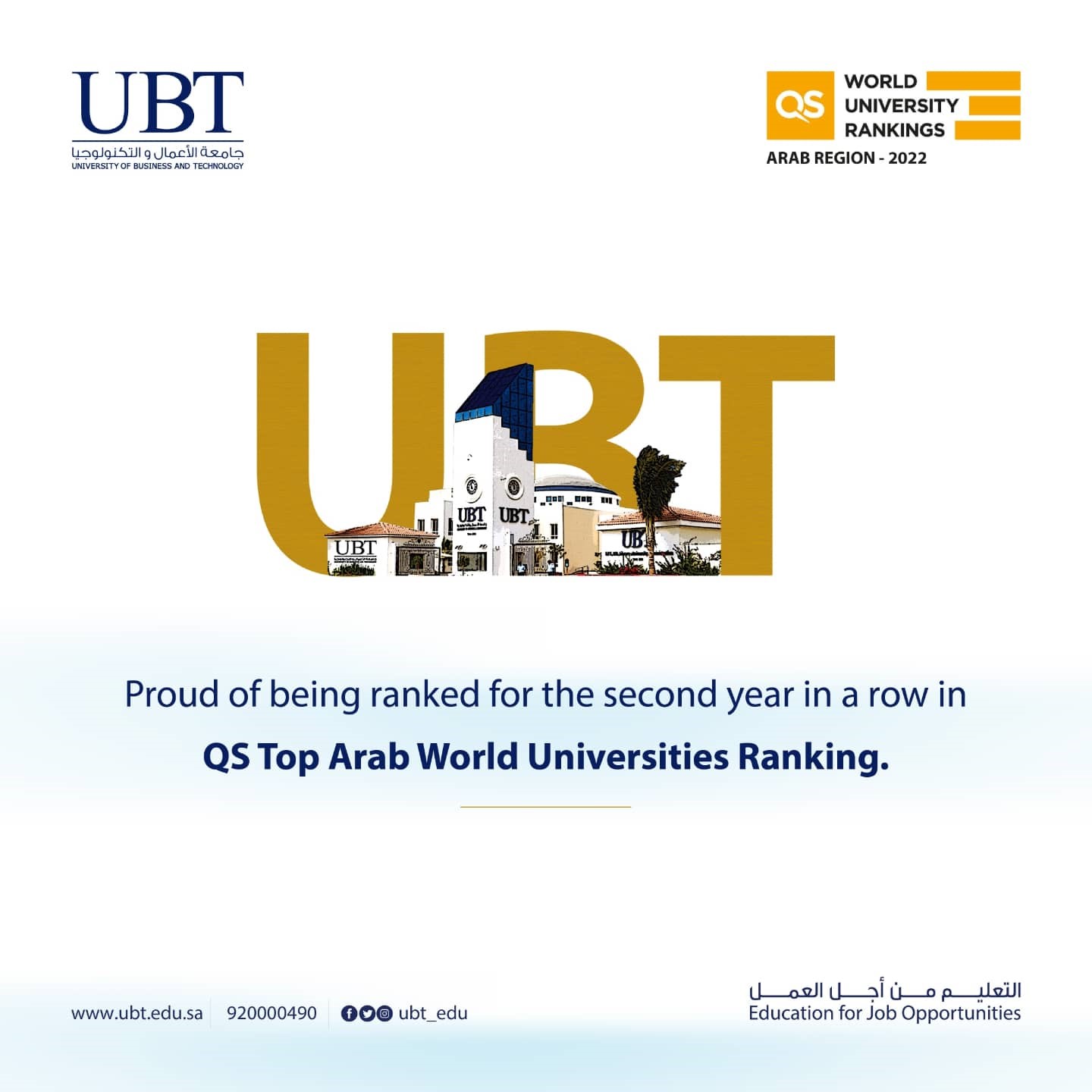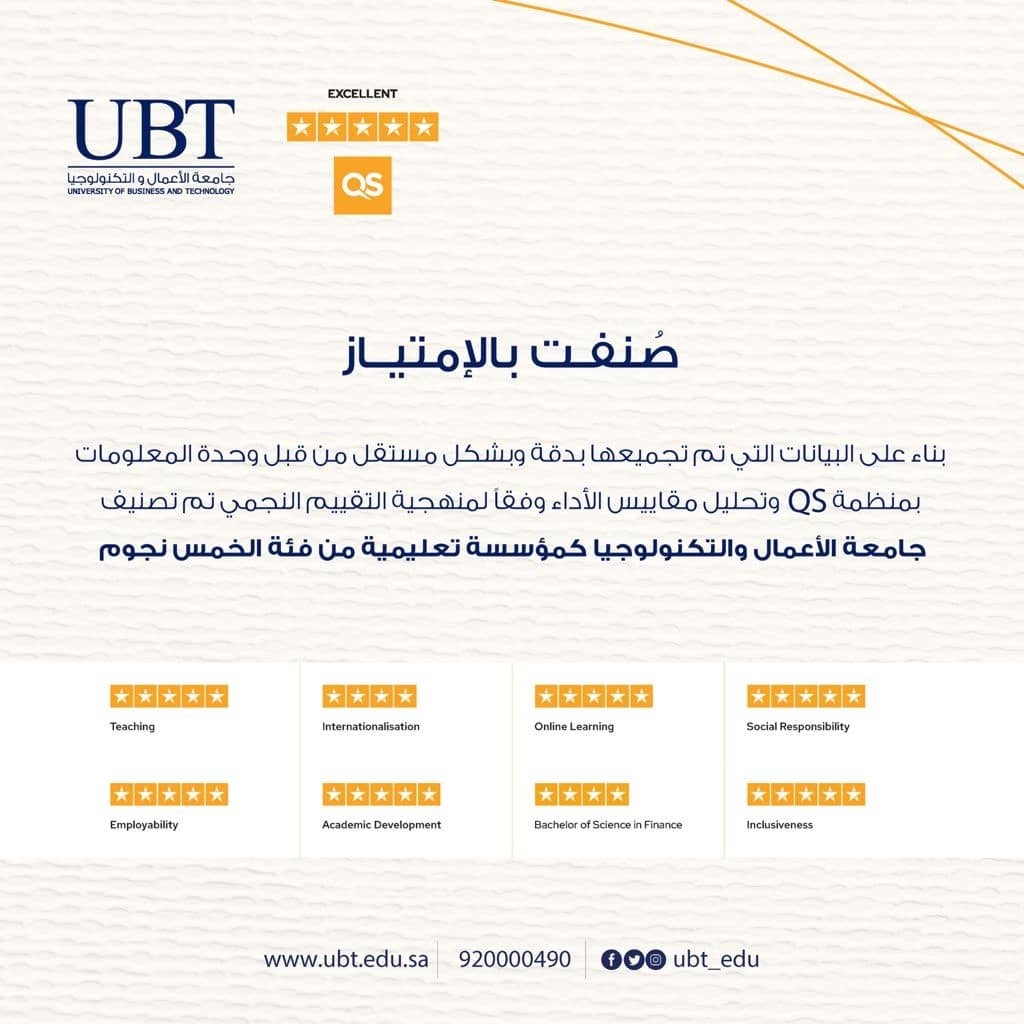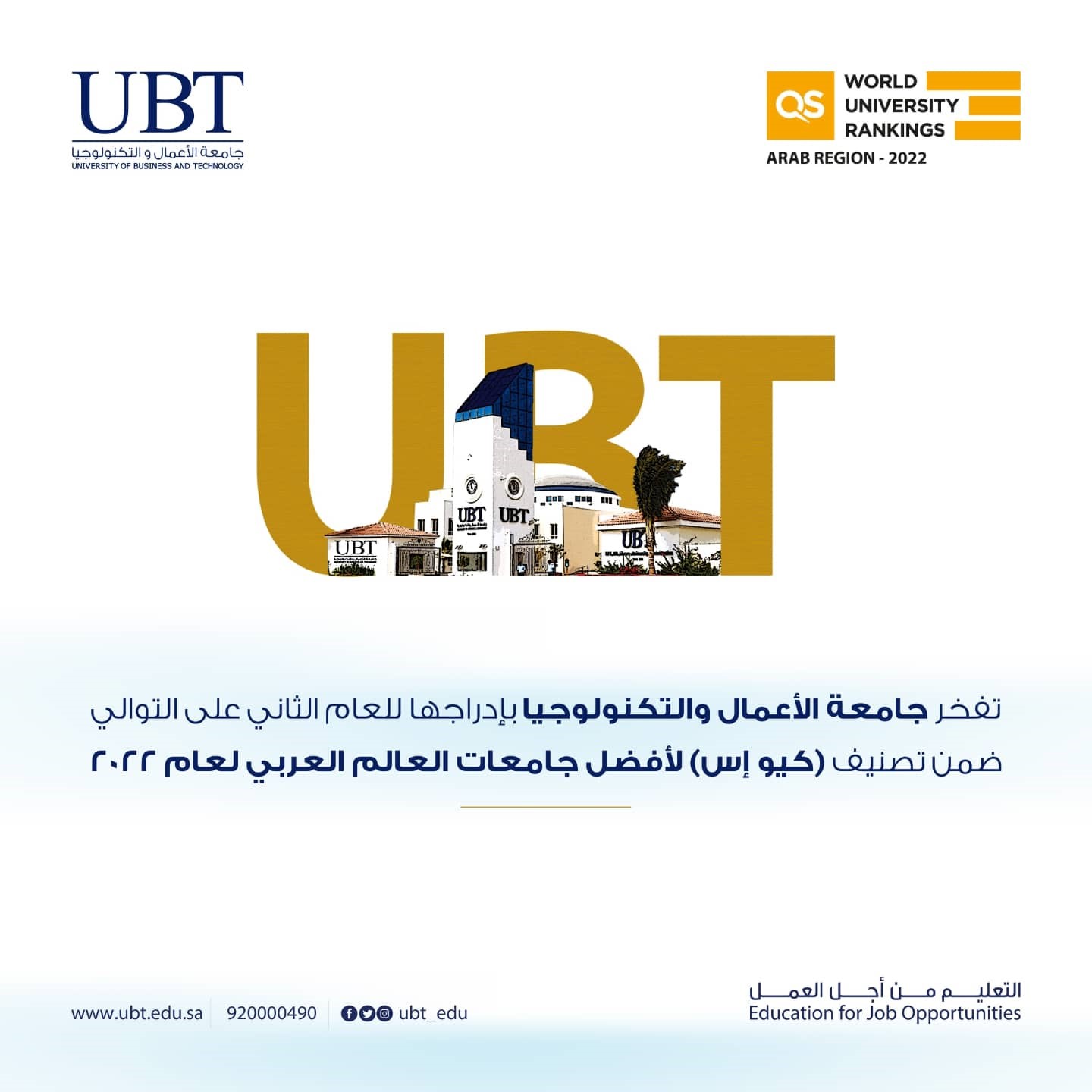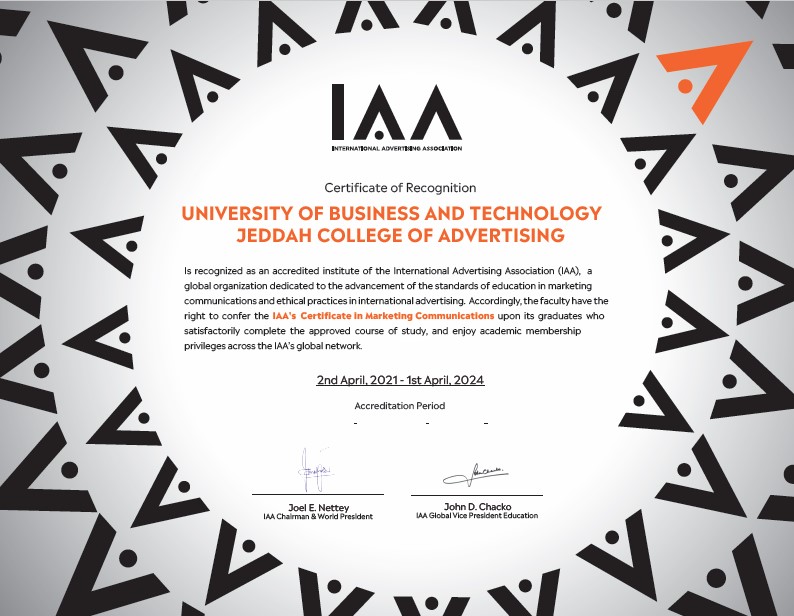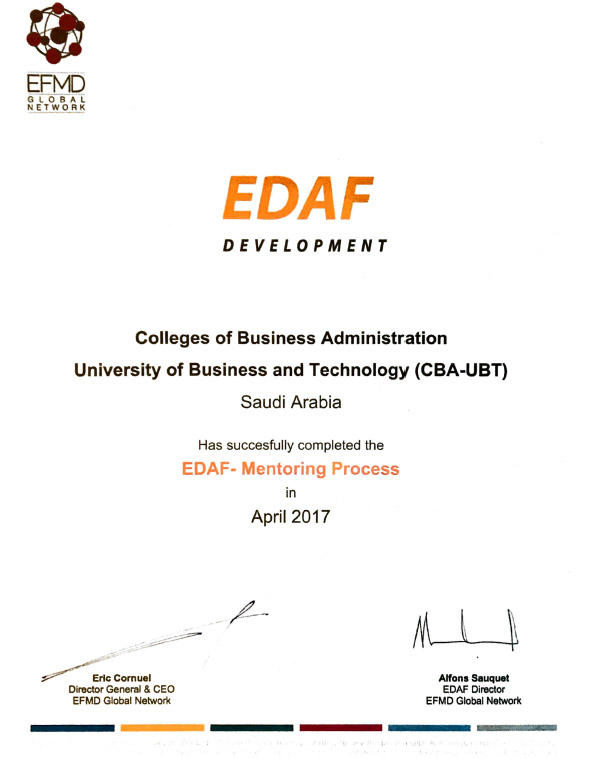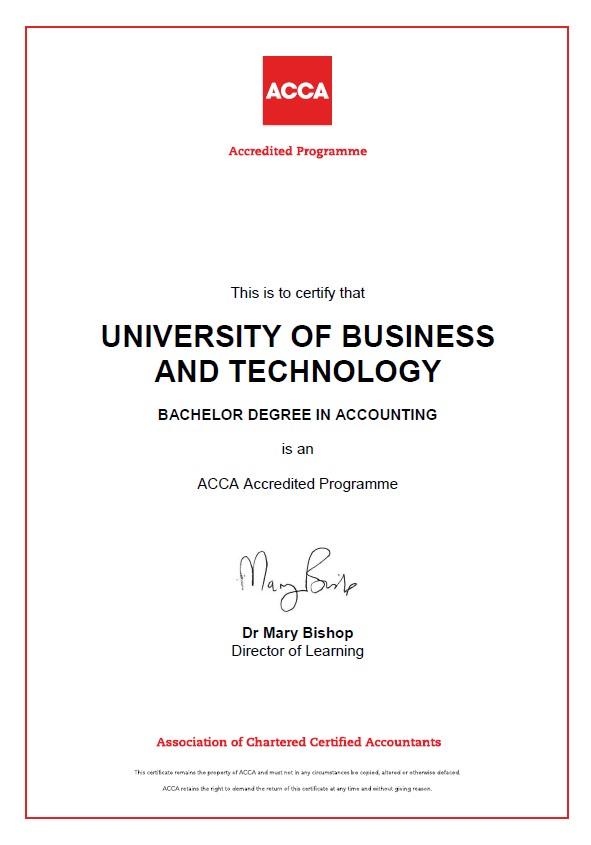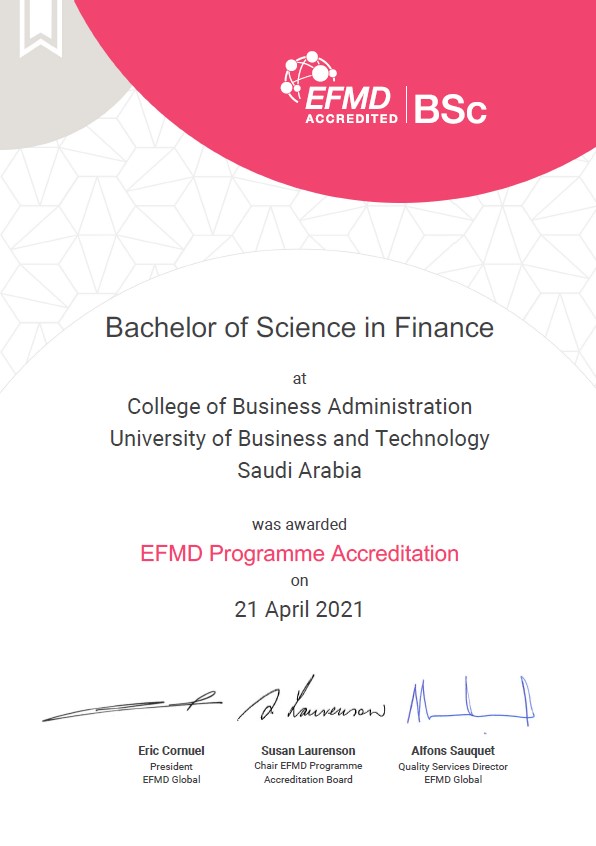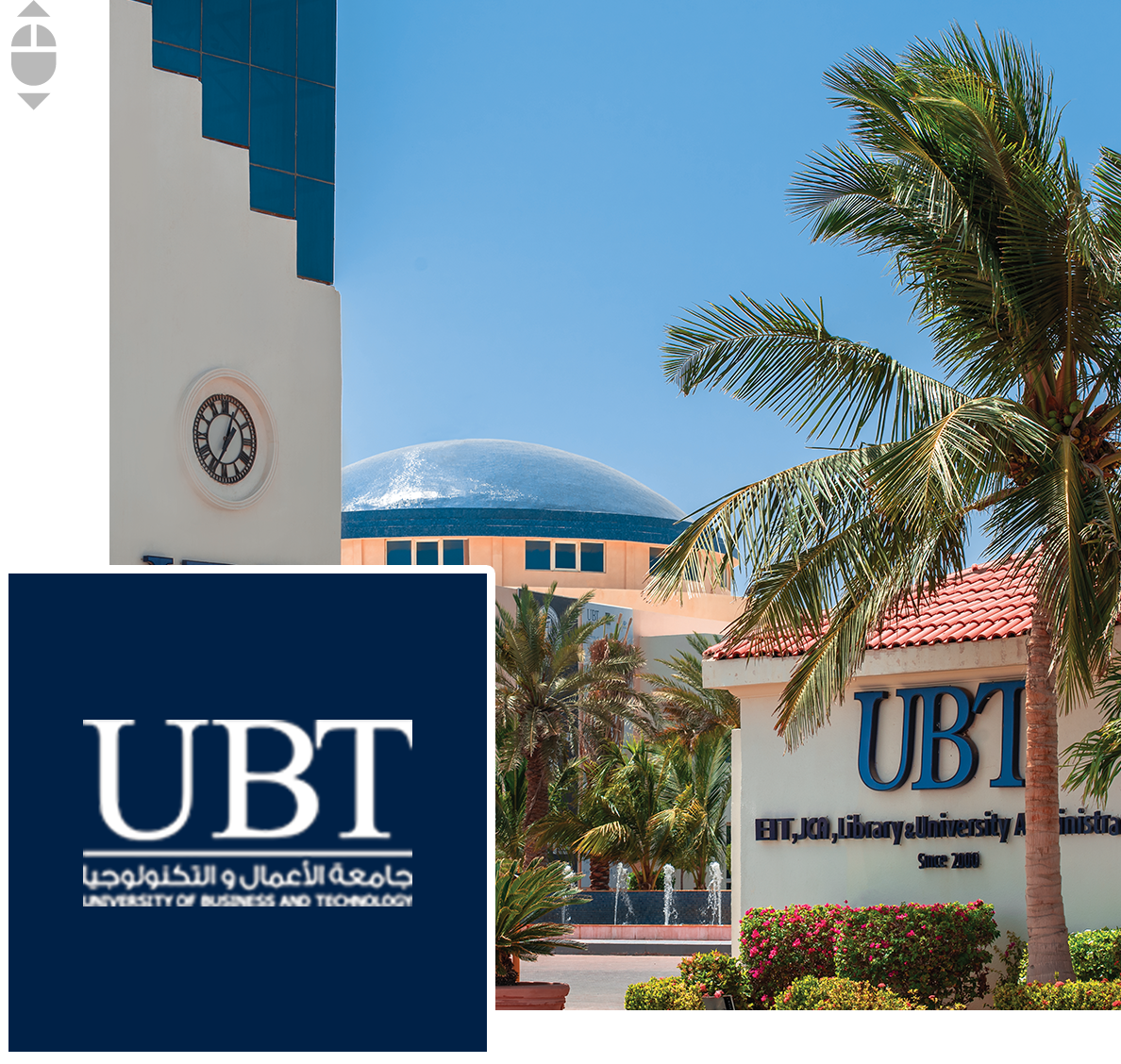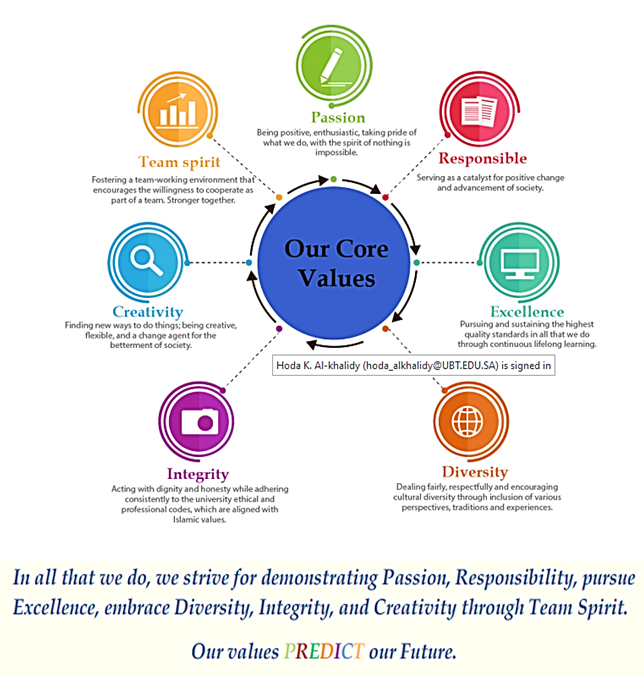
Furthermore, in 2012 CBA obtained a University Status and was officially announced by the Higher Council of the Saudi Higher Education as the University of Business and Technology (UBT). The growth journey has continued as UBT with most recently in 2018, the MOE approving offering five new master’s degree programs within the College of Business Administration.
Right from its inception, UBT has focused on providing students with a unique learning experience that is built on solid core values. In particular, UBT prides itself with its high levels of graduates’ employability, and a strong reputation from employers. Today the UBT serves over 5000 students through its four established Colleges, and offers eighteen undergraduate programs and seven masters’ programs; in addition to its Executive Education Center (EEC) and the English Language Academy (ELA). The EEC provides practitioners and executives with professional certifications and qualifications with the highest international standards and recognition.
The University has currently two campuses; its main male campus in Dahban located around 40 km north of Jeddah City; where all Colleges have a presence, in addition to the different Supporting Deanships, ELA, student dorms, sports and recreation facilities, the bookstore, restaurants and coffee shops, and the Grand Mosque. The Female campus, known as Jeddah Campus, is located in Jeddah City and includes the Colleges: CBA, CE, CL, and JCA, Deanships, ELA, sports and recreation facilities, and a bookstore.
Another important breakthrough for an emerging institution was the establishment of a Teaching and Learning Centre (TLC) in 2012 to support the ongoing quality of teaching; later renamed to the ‘Faculty Development Centre’, which mainly focuses on providing internal and external development opportunities for Faculty Members. Through different agreements and memberships such as the Higher Education Academy in the UK, training opportunities were provided to 69% of UBT’s teaching staff. Moreover, in 2018, about 94% of UBT faculty got training in different subjects concerning teaching & learning.
Curriculum development in association with:
- Higher Education Academy - UK (CBA)
- University of Connecticut USA (CE)
- Western Michigan University – USA (CBA)
- Buckinghamshire New University (JCA)
As the University has matured, it has increased its research activities and introduced graduate programs as part of its aspiration to shift from being a teaching university to becoming a comprehensive university focusing on teaching, research and community engagement. Most recently UBT has committed to leveraging applied research and to provide an environment that encourages both students and faculty members to become researchers. As such, it has set in 2013, the Research and Consultation Centre which was in 2017 converted into the Deanships of Scientific Research. UBT continues to grow its links with the local community as well as with international partners to fulfill its mission statement and achieve its strategic goals.
Taking into consideration the importance of Quality and Development as a strategic priority for UBT, in 2018, the Quality and Development Division within the Vice Rectorship for Quality and Development became a Deanship.
UBT has also keen interest on positioning itself both regionally and internationally and as such has throughout the years become a member of several well reputable organizations. UBT is today a member of:
-
The Association of Arab Universities (AARU)
-
The International Association of Universities (IAU)
-
The IREG (Observatory on Academic Ranking and Excellence)
-
PRME (Principles of Responsible Management Education) – UN - Global Compact - Initiative
-
AACSB, EFMD and AMBA
-
The Saudi Arabia Solar industry Association (SASIA)
-
The Institute of Electrical and Electronics Engineers (IEEE)
Through the 20 years journey, UBT has graduated almost 10,000 students holding leading positions in well recognized companies throughout the kingdom.
